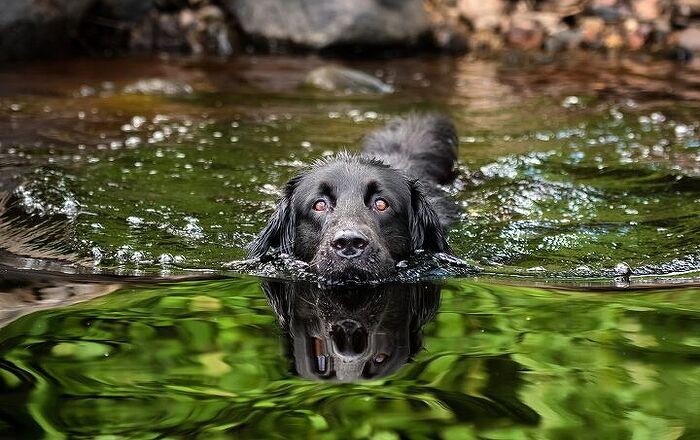
Tags might not be enough – here’s why your should be microchipping your dog.
According to the ASPCA, over 8 million animals wind up in animal shelters each year and, of those 8 million, only about 15 to 20 percent are ever reclaimed by their owners. Though some of the pets accounted for in this statistic are abandoned or homeless, many of them are simply pets that have gotten lost and their owners never found them. If your dog ever gets lost, you will be glad that you invested in a microchip, one of the simplest ways to protect your pet if you get separated.
What is Microchipping?
A microchip is exactly what it sounds like – a tiny chip that contains a number that can be used to identify your dog if he becomes lost. The chip is embedded directly under your dog’s skin between the shoulder blades using a needle. The process is very quick and simple and it can be performed by a qualified veterinarian or at an animal shelter. For the most part, microchipping your dog is relatively inexpensive, generally costing no more than $50 per chip. Once your dog is microchipped, the number is stored in connection with your contact information and, if your dog becomes lost, the chip can be scanned to retrieve the number and to contact you.
Related:Britain Passes Dog Microchipping Law
Pros and Cons of Microchipping
The main benefit of microchipping is, of course, the fact that it makes your dog easy to identify in the event that he becomes lost. Every microchip is given a unique number and that number is tied to the contact information you give at the time of the procedure. If your dog gets lost, the microchip can be used to contact you so you can be reunited with your pet. Another benefit of microchipping your dog is that it is a quick and relatively painless process. The process for injecting a microchip only takes a few seconds and it won’t hurt your dog any more than a simple blood draw. If you are concerned about the pain for your pet, have the procedure done at the time as your dog’s spay/neuter surgery so he or she will already be under anesthesia.
Of course, you always want your dog to have an ID tag. That’s the easiest and fastest way for someone to get your information and get your pet back to you when he or she is lost. A microchip scan can be a bit more work. But, sometimes tags and collars fall off (more often than not) and microchipping means someone will ALWAYS be able to get in touch with you.
We like to think that teaching our pets to come when called is a good idea (and it is) but the truth is, they may not. Sometimes, that stinking squirrel is just too alluring a temptation and he can’t help but run after. Having tags is great, but there is no guarantee that they’ll stay on. A microchip is really forever, even if it’s not kept up (though we recommend you always keep them up-to-date).
The bottom line is that studies have shown pets with microchips have much greater chances of being reunited with their pawrents. The return-to-owner rate is about 2.5 times higher than the return rate for all stray dogs when the dog was microchipped, according to researchers from The Ohio State University School of Veterinary Medicine. It’s a good idea and it can save your doggo’s life and bring him home when he’s lost.
Related:What To Do If Your Dog Gets Lost
How a Microchip Helps you Find a Lost Pet
Unfortunately, there is no way to track your pet using a microchip – it will only work if someone finds your dog and turns him in to a shelter of a veterinarian’s office. When this happens, the chip can be scanned and the company that produced the chip will be contacted to get your information. Another thing to keep in mind with microchipping is that it is essential that you keep your information current. If you have a change of address or phone number, you must contact the company and update your registration. If your pet has a microchip but the information on file is out of date, it won’t help you.
Losing your dog can be a heartbreaking and traumatic experience and, unfortunately, not all lost dogs are reunited with their owners. Performing a manual search for your dog and posting flyers may work in some cases, but that is not always the case. The best way to ensure your pet’s return is to have him microchipped so that anyone who finds him can have him scanned and reunited with you as soon as possible.
If your pet isn’t microchipped, ask your vet for the best and fastest way to make it happen–for the safety of your furbaby!














